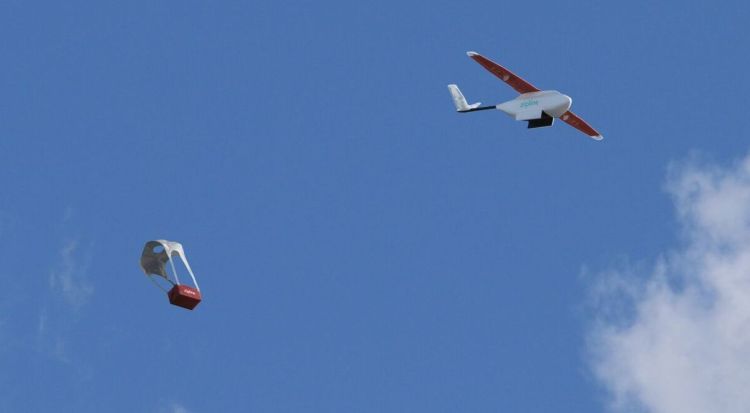Tanzania is leading the way on drone deliveries as the east African country looks to provide easier access to emergency medical supplies.
The Tanzanian government has announced that it will use more than 100 drones from four distribution centers to make up to 2,000 deliveries each day, kicking off in early 2018.
For the initiative, the government is partnering with Zipline, a San Francisco-based robotics startup that builds autonomous drones designed to deliver vaccines, medicine, or blood on request from health workers operating in hard-to-reach areas.
Zipline has raised around $40 million in venture capital, and claims big-name backers such as Sequoia Capital, Andreessen Horowitz, Google Ventures, Microsoft cofounder Paul Allen, and Yahoo founder Jerry Yang.
June 5th: The AI Audit in NYC
Join us next week in NYC to engage with top executive leaders, delving into strategies for auditing AI models to ensure fairness, optimal performance, and ethical compliance across diverse organizations. Secure your attendance for this exclusive invite-only event.
“Every life is precious — the government of Tanzania, through the Ministry of Health, Community Development, Gender, Elderly and Children, has made great achievements in improving health services including the availability of medicines in all public health facilities,” explained Dr. Mpoki Ulisubisya, permanent secretary of the Tanzania health ministry. “Our vision is to have a healthy society with improved social well being that will contribute effectively to personal and national development; working with Zipline will help make that vision a reality.”
The drones and associated delivery services are built and managed by Zipline, a company that is no stranger to working with east African countries. Last year it partnered with Rwanda’s health department in one of the world’s first commercial national drone services. At the time, Zipline said it would be making up to 150 flights each day, delivering blood to 21 transfusion facilities around the country.
Each drone is capable of carrying 1.5kg loads, and travels at around 110km per hour with a range of 160 kilometers. Health workers place their orders by SMS, with delivery taking an average of around 30 minutes. It’s also worth noting here that the drones don’t land — they travel close to the ground and then “drop” the cargo at a designated site near the health center.
‘World’s largest drone delivery network’
With Tanzania, Zipline is taking things to the next level by creating what it claims will be “the world’s largest national drone delivery network,” covering blood transfusion supplies, emergency vaccines, HIV medications, and anti-malarials, among other supplies. The first distribution center will be located in Tanzania’s capital, Dodoma, and is expected to begin operating in the first quarter of 2018. Three additional hubs will open across the country shortly after.
“We strive to ensure that all 5,640 public health facilities have all the essential medicines, medical supplies and laboratory reagents they need, wherever they are — even in the most the hard to reach areas,” added Laurean Bwanakunu, director general of Tanzania’s medical stores department. “But that mission can be a challenge during emergencies, times of unexpected demand, bad weather, or for small but critical orders. Using drones for just-in-time deliveries will allow us to provide health facilities with complete access to vital medical products no matter the circumstance.”
Away from the critical health care realm, drones are increasingly being used and tested in all manner of industries. Just yesterday, Israeli drone firm Flytrex claimed a “world’s first” when it announced a partnership with Icelandic ecommerce company Aha to launch the first fully autonomous commercial drone delivery service. Elsewhere, a company called Prenav is helping organizations inspect their properties using automated drones, while countless other startups have been nabbing VC cash over the past few years.
Zipline said that it plans to bring its drone delivery service to other countries in 2018.
“Millions of people across the world die each year because they can’t get the medicine they need when they need it,” noted Zipline CEO Keller Rinaudo. “It’s a problem in both developed and developing countries. But it’s a problem we can help solve with on-demand drone delivery. And African nations are showing the world how it’s done.”

